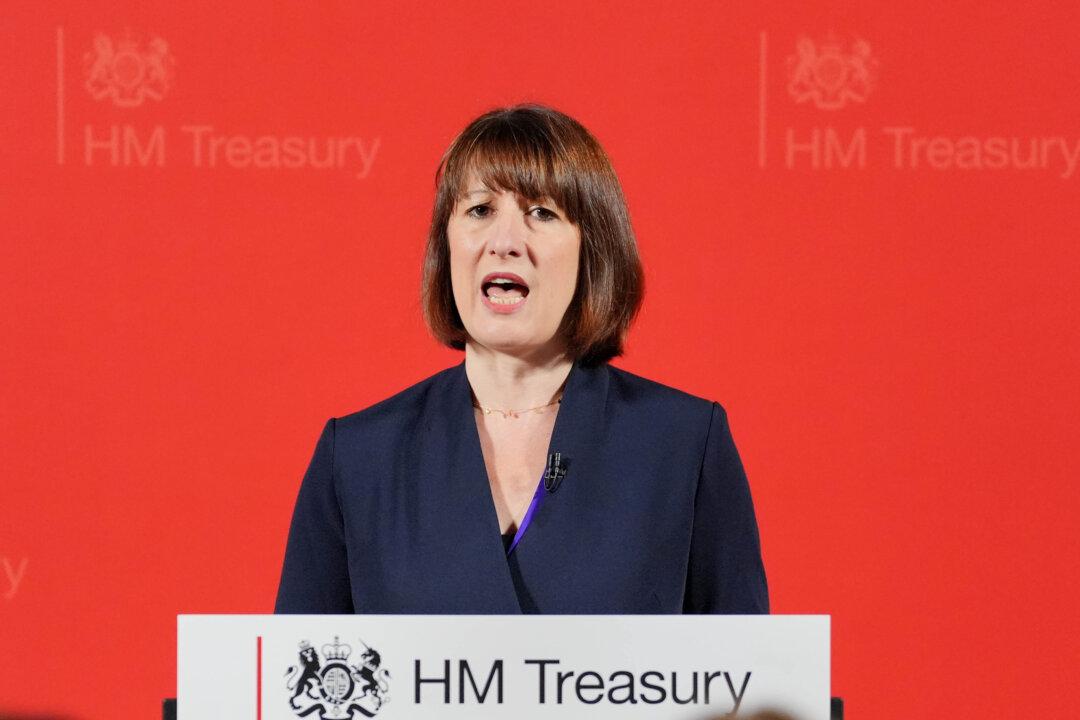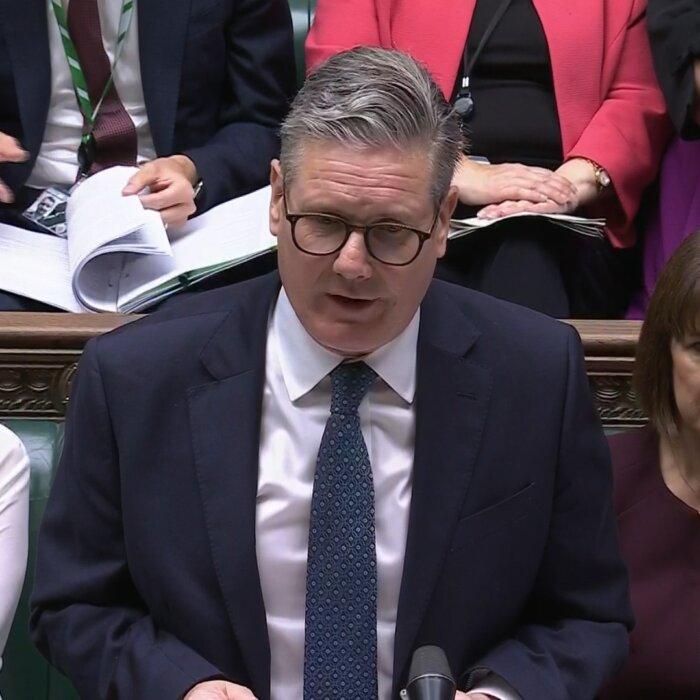NHS staff and teachers will get above-inflation pay boosts while new hospitals, transport projects, and other Tory spending pledge will be cancelled, Rachel Reeves announce on Monday.
The new chancellor announced a raft of spending cuts, blaming the previous government for a £22-billion budge hole she said Labour has found since entering Downing Street.
Ms. Reeves said she’s launching a multi-year spending review and will set out budget for the current and the next financial year on Oct. 30, and expects to make “difficult decisions ... across spending, welfare and tax” in her first budget.
Making a statement in Parliament, the chancellor told MPs Labour has “inherited a projected overspend of £22 billion” this year.
The chancellor said projected spending overshoots included more than £6.4 billion in the cost of supporting asylum seekers, £1.6 billion in transport, and an unspecified amount in pledged support for Ukraine.
Spending Cuts
The chancellor vowed to honour commitments to Ukraine “in full,” and cancelled a number of “unfunded” Tory policies including the Rwanda deportation plan, a new “Advanced British Standard” qualification framework for 16- to 19-year-olds in England that was meant to bridge the gap between A-levels and T-levels, and a £150 investment opportunity funding package.She also axed £1 billion worth of transport projects that the Tories had pledged, including work on the A303 and the A27, and the plan to build 40 hospitals.
Instead, the chancellor said she will “conduct a complete review of a new hospital program with a thorough, realistic and costed timetable for delivery.”
From this year, those not in receipt of pension credit or certain other means-tested benefits will no longer receive the winter fuel payments, although Ms. Reeves said the government would work on raising awareness about pension credit to boost takeups.
The Tories’ adult social care charging reforms, which was delayed to October 2025, will not go ahead either.
The chancellor also said she will delay the retail sale of the rest of government’s shares in NatWest because selling them by 2026 would “involve significant discounts that could cost taxpayers hundreds of millions of pounds.”
The announcements came after days of speculations that Labour ministers was laying the foundation for tax rises by blaming the tories for a £20 billion hole in the budget.
Ms. Reeves insisted Labour will not go back on its manifesto pledge of not raising the rates of national insurance, income tax, or VAT, but say the autumn budget “will involve taking difficult decisions to meet our fiscal rules across spending, welfare, and tax.”
The chancellor also announced plans to tackle wastes and boost growth, including a “new approach to public service reform,” appointing a COVID corruption commissioner, reviewing costs such as ministerial severance payments, and prioritise areas of capital investment that leverage in billions more in private investment.
Pay Boosts for Teachers, NHS Staff
While announcing a range of spending cuts, Ms. Reeves said she’s accepting in full the recommendations of pay review bodies to give NHS staff and teachers an above-inflation pay of 5.5 percent in a bid to prevent further strikes.The chancellor said the package will cost an additional £9 billion this year, and she has asked departments to fund savings to absorb it “as much of this as possible.”
Ms. Reeves accused the Tories of providing “no guidance on what could or could not be afforded to the pay review bodies,” and said she will consider reforms in the future.
Unions welcomed the government’s decision.
The National Education Union (NEU) executive will meet next week to consider the offer and it will make a recommendation for its members to vote on in September.
Hunt: Labour Claim
Shadow chancellor Jeremy Hunt claimed around half of the £22 billion “fictitious black hole” in the public finances set out by Ms. Reeves was due to her deciding to give above-inflation pay rises to public sector workers.Responding to her Commons statement, the Tory frontbencher said pay awards were discretionary, “in other words, not something she has to do, but something where she has a choice.”
“Was she advised by officials to ask unions to ask for productivity enhancements before accepting above-inflation pay awards to help pay for those awards as the last government did?
“And if she was advised to do that, why did she reject that advice and simply tell the unions, ‘here’s the money, thanks for your support’?”
He later said: “She’s caved into the unions on pay, left welfare reform out of the King’s Speech, soft-pedalled on our productivity programme, and that is a choice, not a necessity.”
Paul Johnson, director of the influential IFS think tank, noted that “half of spending ‘hole’ is public pay over which govt made a choice and where pressures were known.”







